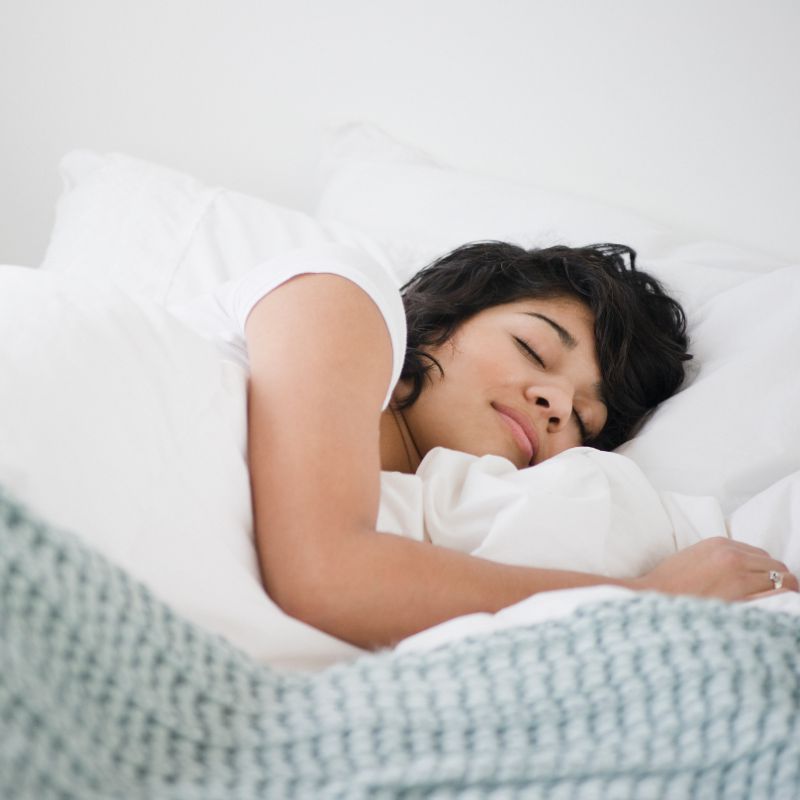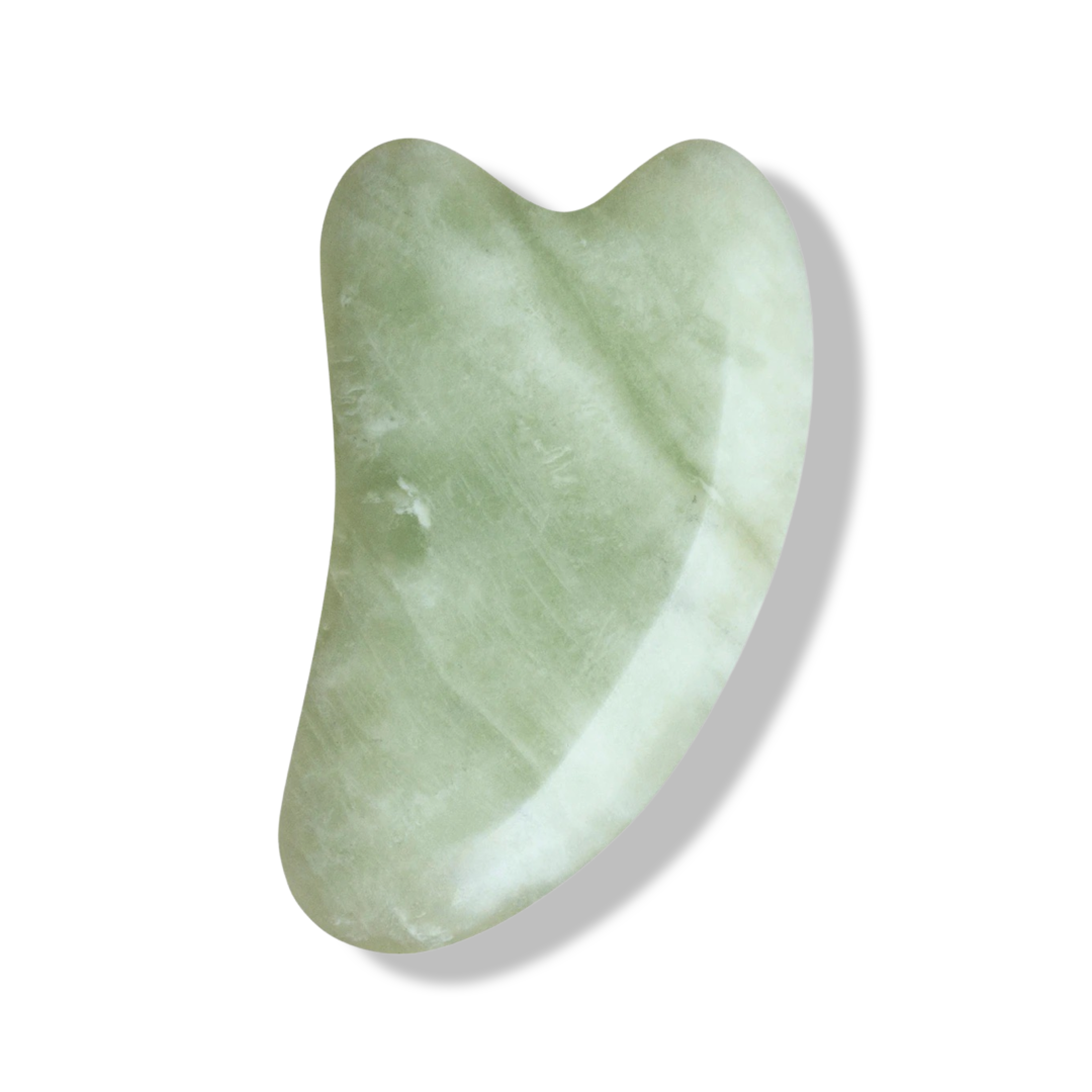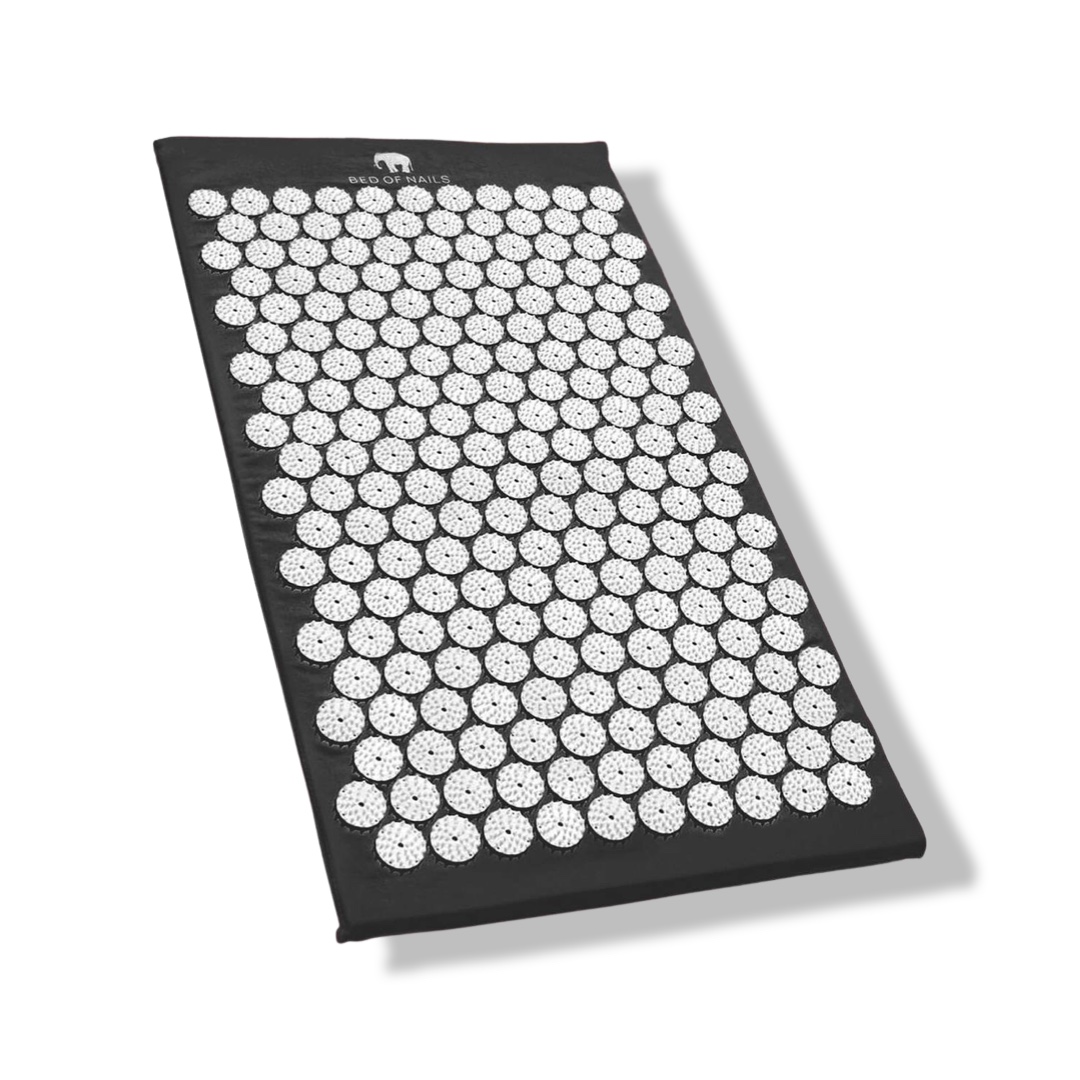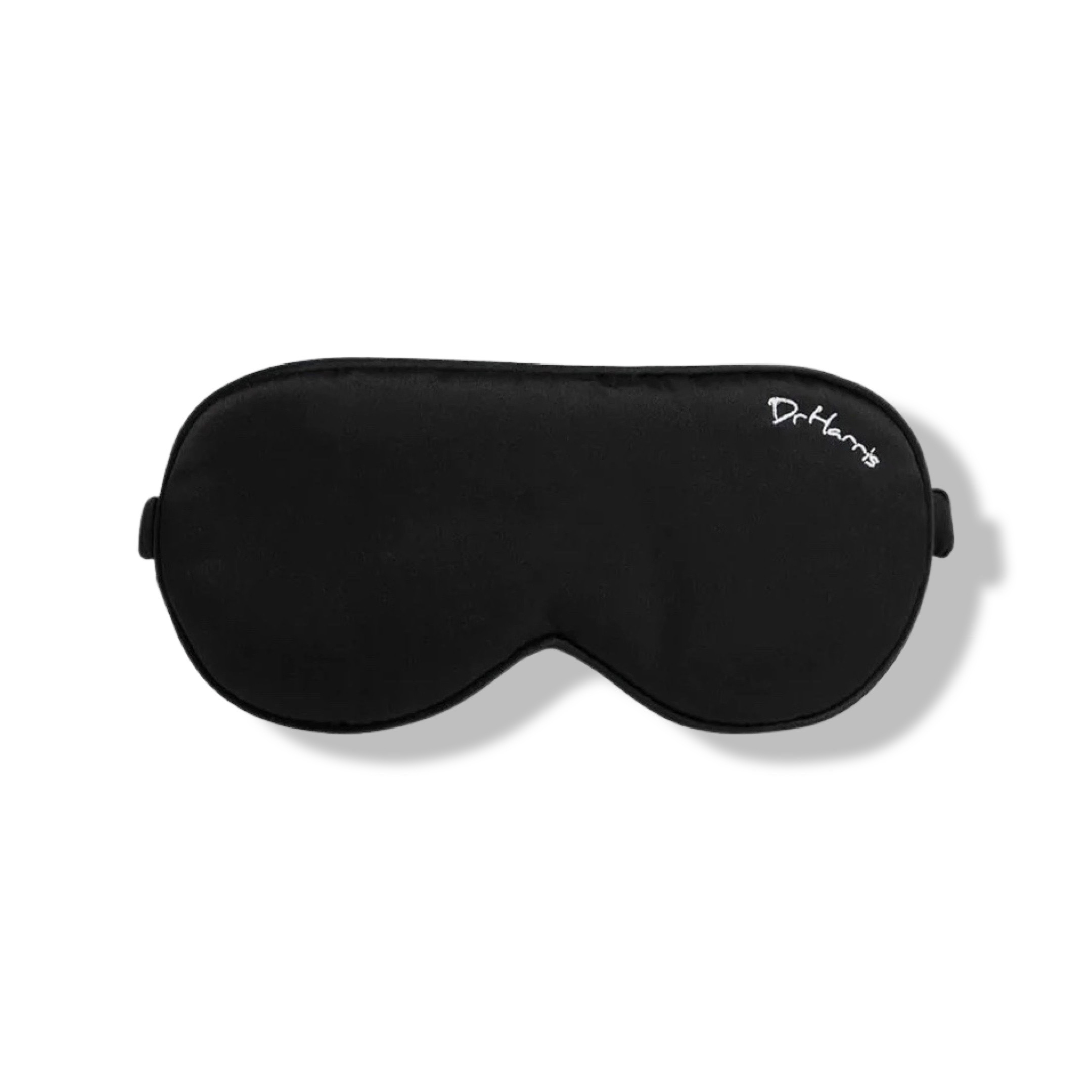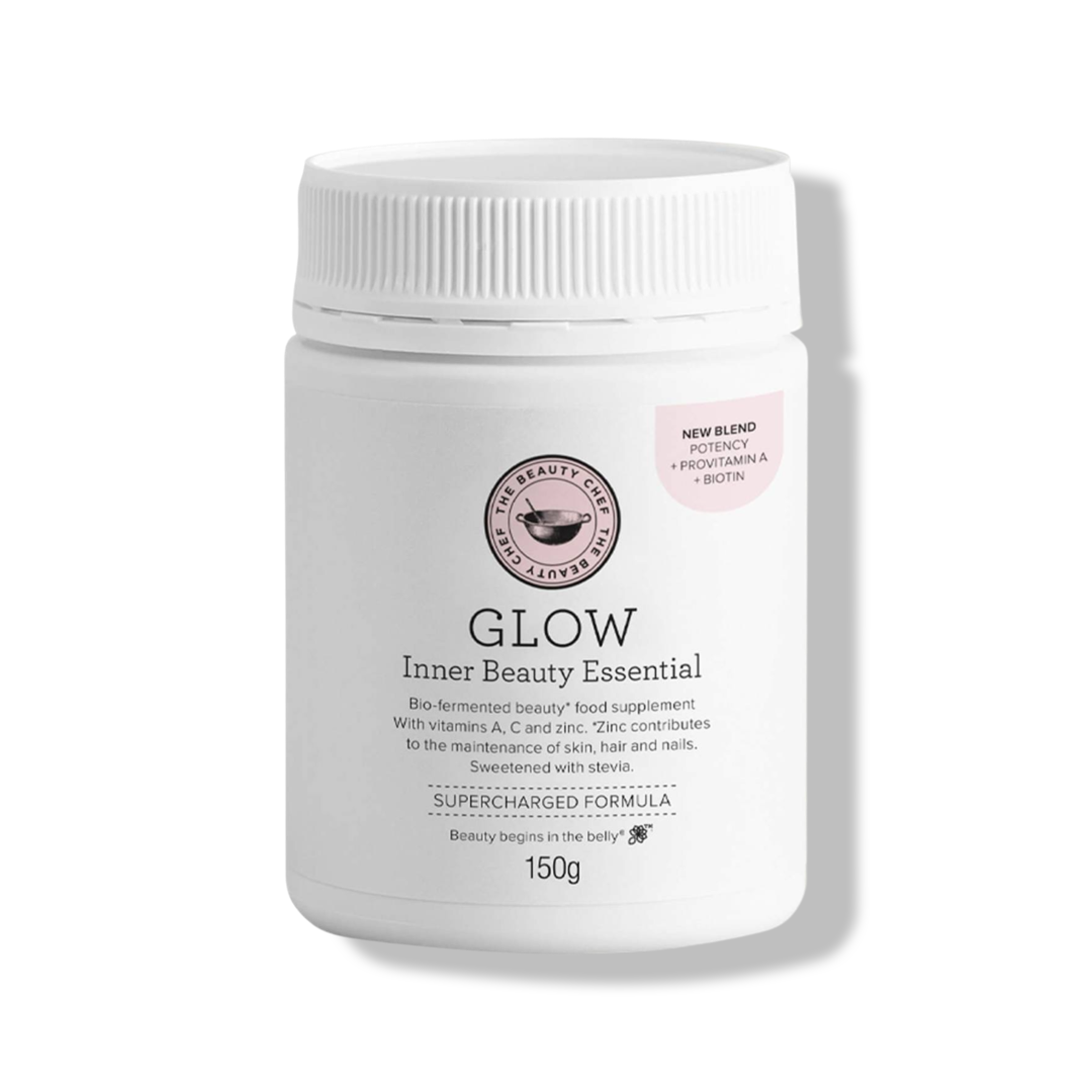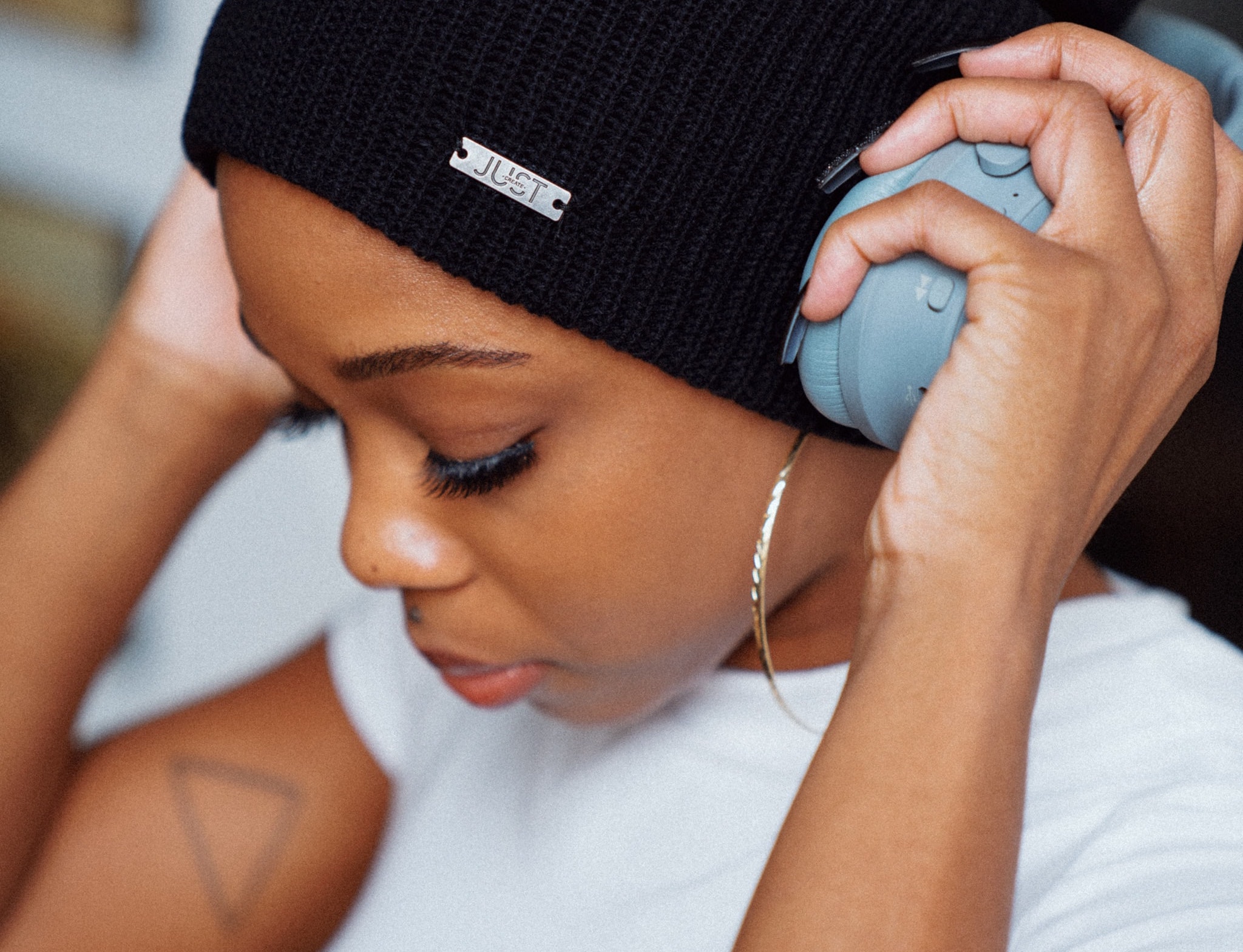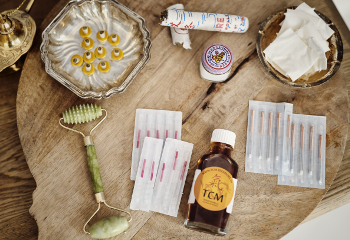Up Your Oxygen
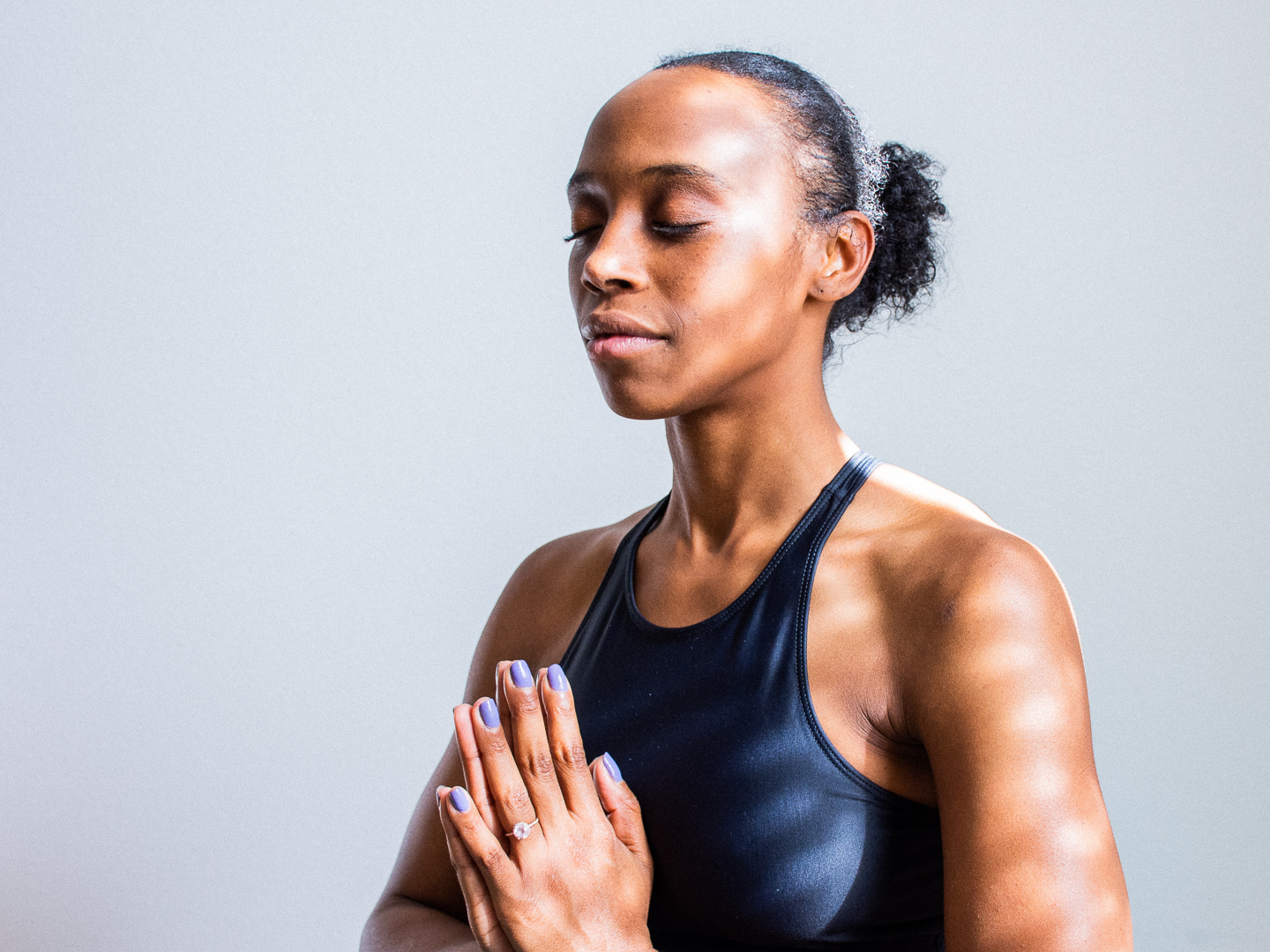
We’ve lost count of the number of experts who have said that the key to good health is correct breathing, so it came as no surprise that every single one of the people we interviewed for this piece mentioned the transformational impact breathing correctly can have on sleep quality.
“Breath is the number one healing modality to the body,” explains Chinese Medicine expert & Founder of the Hayo’u Method Katie Brindle. Almost all of us aren’t breathing properly, so begin to change your habits by taking 3-5 minutes a day to focus on getting lots of lovely fresh oxygen into your lungs. Brindle favours the smiling rescue breath, where you place your hand on your lower stomach, put a Mona Lisa smile on your lips and breath in and out slowly and deeply. “In five deep breaths you can completely negate the stress response. Do it in any stressful situation but also build it into your day – during a shower, boiling the kettle, while washing your hands.”
If you struggle to get to sleep or suffer with insomnia or nighttime anxiety, breathing can also help. “A heart rate of under 60 is needed to fall asleep,” adds Hastens ambassador Dr. Michael Breus – or ‘The Sleep Doctor’ – as he is more widely known. “To lower your heart rate, try the 4-7-8 breath: breath in for a count of 4, hold for a count of 7 and breath out to a count of 8. This last long breath gets rid of any CO2 in lungs to lower heart rate.”
“What’s also important, particularly at the moment when we’re all spending more time at home, is the quality of breath you are getting from the air around you,” explains Brindle. “As well as regularly opening windows, NASA have done studies on oxygen levels and found that certain houseplants can help give you the optimum quality of oxygen: Bonsai, Snake plant, Money trees, Chrysanthemum and Bamboo palms are all great for maintaining good quality air in the house.”
Massage These Two Key Areas
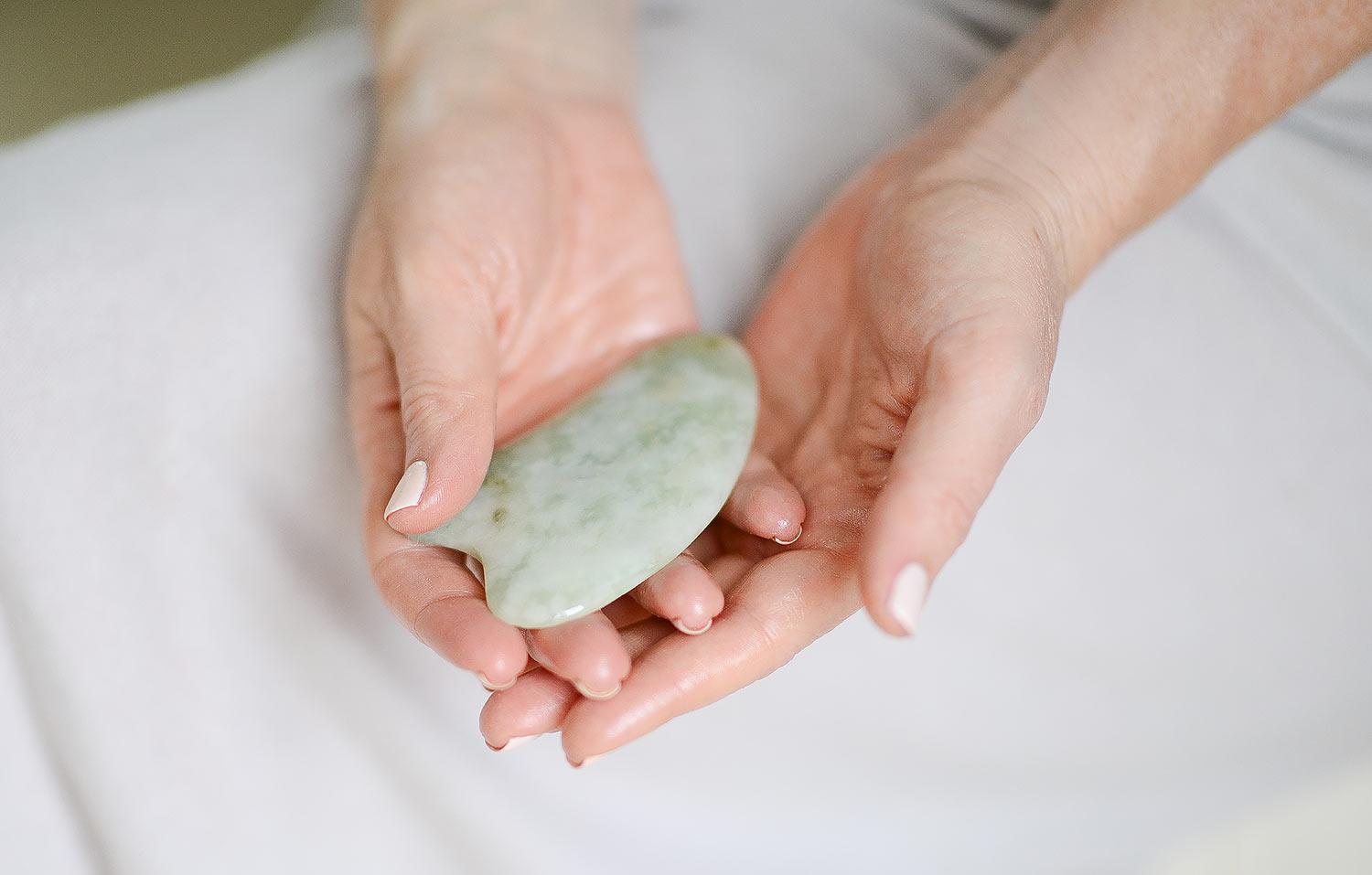
There are two key ways to encourage relaxation, as well as the movement of lymph, toxins and to boost Wei-Qi (the Chinese Medicine name for our immune system).
The first is to give yourself a warm water foot bath. “Massaging your lower legs and feet encourages the blood to flow away from an overstimulated brain,” explain Escapada Health Co-Founders Maeve & Emilia. “Use a bowl or tub with space for both feet and fill it with warm water. Adding fresh or powdered ginger can reinforce the body’s warming energy, so add some to the tub if you tend to have cold extremities. Remove your feet from the water once you start to feel a slight sweat, which indicates that the body’s stagnant energy channels are no longer blocked. “The ankles are where Wei-Qi enters the inner body at night to help repair and balance your key organs,” adds Katie Brindle. “Spending some time massaging your ankles to encourage the tendons and muscles there to relax can help aid its progress at night, promoting better – and deeper – sleep.”
Next, before bed use a Gua She – or jam jar lid – to gently massage your neck and shoulders. “Flushing the toxins and tension away from this key area can have a big impact on how well you sleep,” says Brindle.
Try These Two Drinks
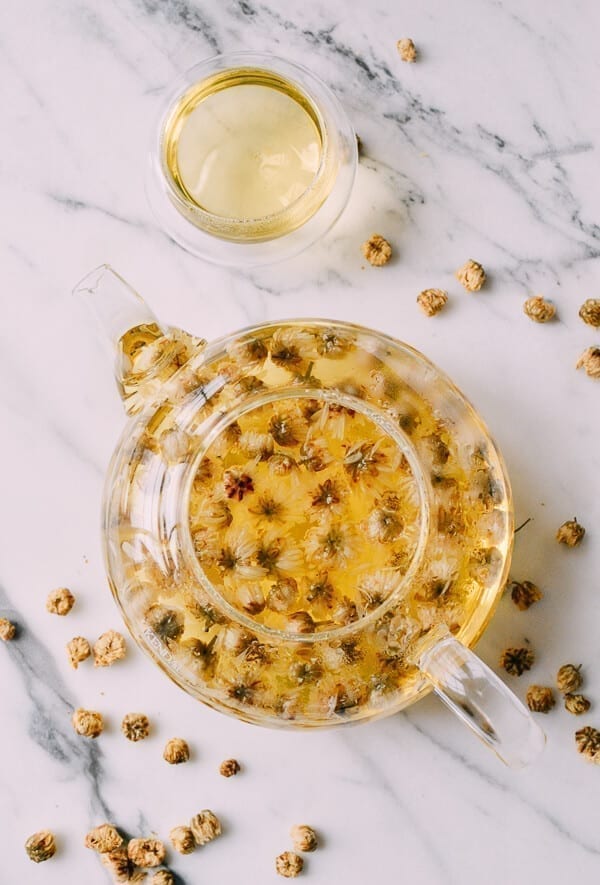
While many of us have historically turned to chamomile tea before bed, both of the following can significantly help boost sleep quality.
“The first is what I call Banana Tea,” explains Dr. Breus. “As it turns out, most people are deficient in Magnesium which leads to restless sleep and one of the easiest ways to increase magnesium is with natures sleeping pills, bananas. If you are having a hard time calming down try this:
1. Take an organic Banana, wash it off and cut off the stem and the tip.
2. Cut it in half and leave the peel on it.
3. Drop it into 3 cupfuls of boiling water and let it boil for about 3 mins (until it turns brownish for a while).
4. Now pour the banana water into a cup and drink
The peel of the banana is loaded with magnesium, almost 3 times the fruit itself, and has several natural aspects which aid with digestion and absorption. Banana tea is also great for constipation, and super safe for kids to try whenever they are a little restless.
The next one is Chysantham tea, something that both Katie Brindle and Maeve and Emilia both recommend. “It isn’t fashionable,” says Brindle “but I intend to change that, as it WORKS.” Chrysanthemum tea clears heat (excessive yang energy) in the liver and calms the nerves. “We love adding goji berries to balance the chrysanthemum’s inherent yin properties and to help nourish the liver – essential if you need to unwind and calm the system,” explain Maeve and Emilia.
Add One Of These To Your Sleep Routine
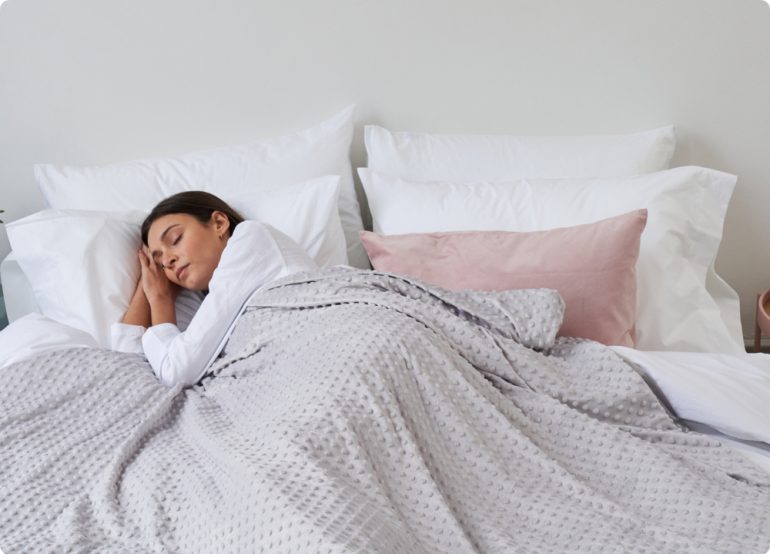
According to a report entitled ‘The Quest for Rest’ by Dewi Pinatih, 56% of UK adults are feeling more anxious and stressed, and 31% are having difficulty sleeping.
Mela’s weighted blanket comes in varying sizes and weights (the right one for you depends on how much you weigh) and uses Deep Touch Pressure (DTP), the term for when pressure is applied equally across the body, which is known to have a calming and organising effect on the nervous system. This kind of technique, applied through a hug, or say, a heavy blanket, has been shown to increase the release of dopamine and serotonin (the ‘happy hormones’) by around 30%, and decrease the stress hormone cortisol by the same amount. This enables the production of melatonin, the hormone that helps you sleep. DTP has been shown to have incredible benefits for all kinds of people, including those with autism, anxiety, depression, tourettes, restless leg syndrome, ADHD, PTSD, or insomnia.
If All Else Fails Try A Nappuccino

Love coffee? Love a little nap? Then your luck is in: there’s actually a scientific method for nailing the perfect nap and bizarrely it involves drinking coffee FIRST. If you’ve had a late night, insomnia has kicked in or you’re in the exhausted new parent phase – this method can buy you “an extra four hours of energy”, according to Dr. Breus, The Sleep Doctor and ambassador for luxury bed brand Hastens.
1. The first step is finding your low point, which is usually around 7 hours after you wake up.
2. Next, down a cup of coffee. Yes, you read that right. Caffeine takes about 25 minutes to engage in your bloodstream, so drink up right before you lie down.
3. Set a timer for 25 minutes – naps between 10 and 20 minutes measurably boost alertness and mental function without leaving you sleepier than before.
4. When you wake up, the caffeine is beginning to kick in and you’ll feel ready to face the day again.
5. While you can use this regularly, note that for a great nighttime sleep, you should aim to cut all caffeine by 2pm, so try to do this technique prior to that time if possible.
SHOP WELLNESS
The ultimate edit – the hottest products, the latest looks, the greatest places.
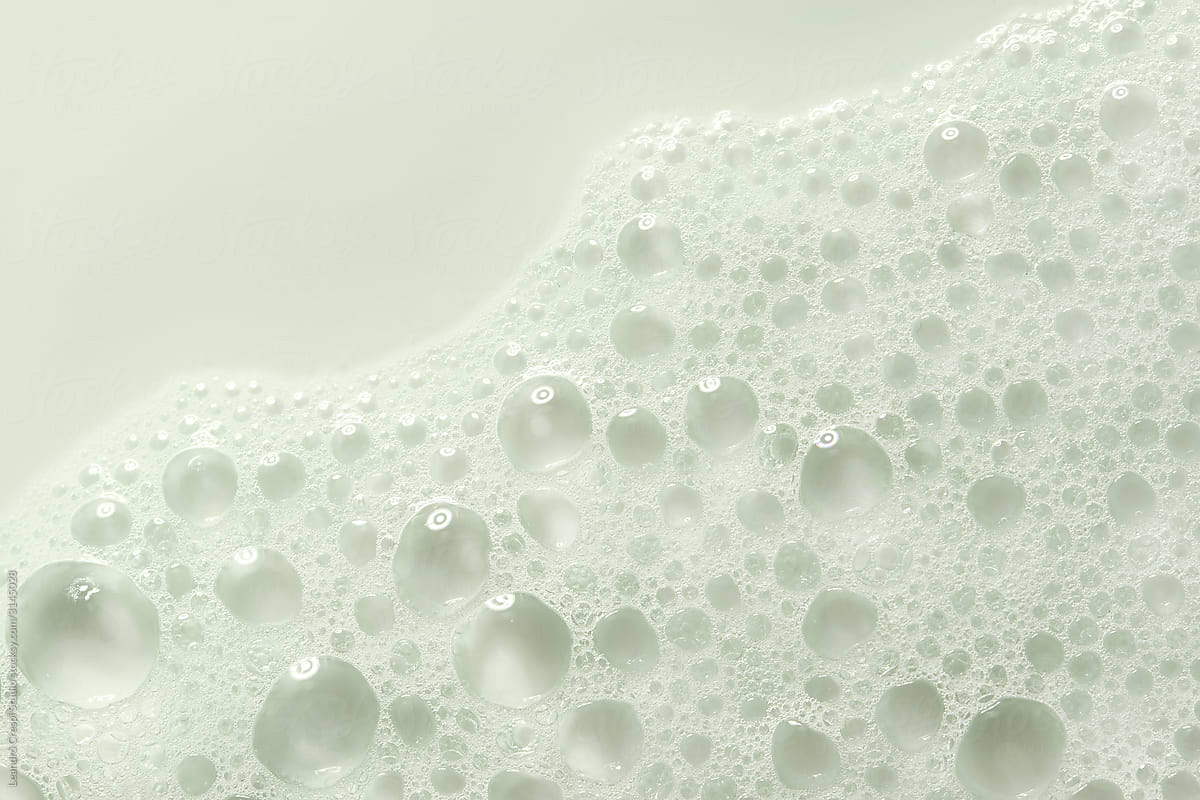
Become a Hunter.
Become part of a savvy group of beauty, grooming & wellness Hunters - try products and places for free, vote on whether they deliver & get exclusive offers & invitations.
Join Us